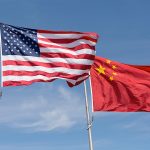Canadian livestock producers won something to crow about but little else in the latest WTO ruling to support their claim that the U.S. mandatory country-of-origin labelling rules are unfair and discriminatory. The ruling was accompanied by the now-familiar volley of press releases from Canadian livestock and meat producers, and more sabre-rattling by federal politicians about










